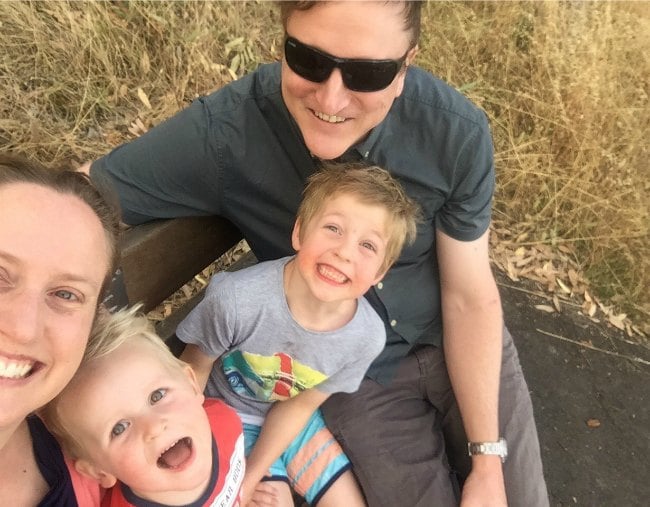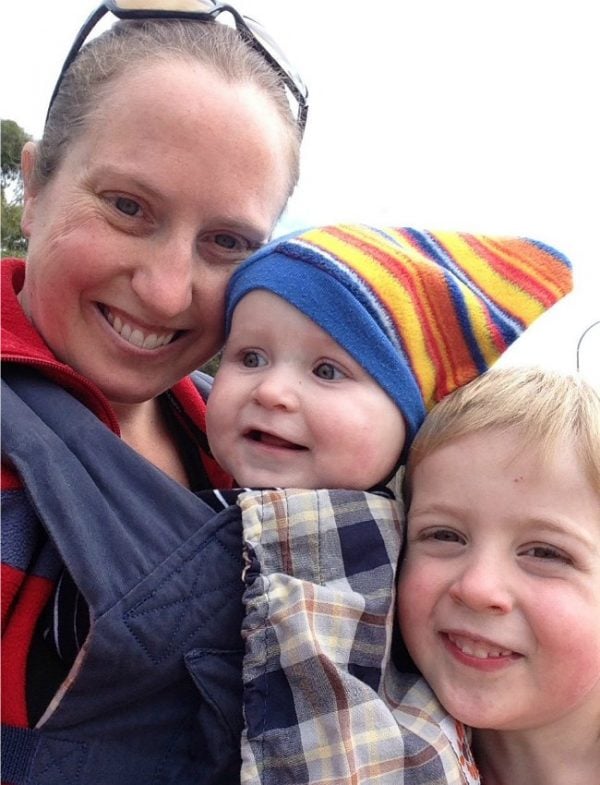
My name is Mel. I am a wife, a mother, a critical care nurse, and a lived experience representative. In 2011, I experienced a severe and lengthy psychotic episode, known as postpartum psychosis after our first son was born. There was no history of mental illness in our family. The symptoms developed over a two-week period, came completely out of the blue and hit our family very suddenly.
The day our son was born, it began with feeling excited, like the night before Christmas. A happiness that grew and grew inside me until it evolved into a euphoric state of mania. This quickly developed into a dangerous psychosis.
After giving birth, I was very excited and chatty. I remember clearly that food had intensified flavour. The world had a weird clarity and I felt I could remember everything I’d ever learnt. This was followed by a passion and energy for cleaning that I had never enjoyed before.
I didn’t feel tired and spent the nights cleaning, writing, sorting, making lists, gardening by moonlight, and feeding the baby. I had boundless energy and enthusiasm despite barely sleeping. I also had fascinating ideas that required lots of thought and experimentation.
The theories hatching in my head were enthralling. I was obsessed with them and was sure if I could just round them up and write them down into sensible sentences, I could publish a book that would change the world. I wrote feverishly. Too busy. Too much to think about. Too excited to sleep. Not tired anyway.

